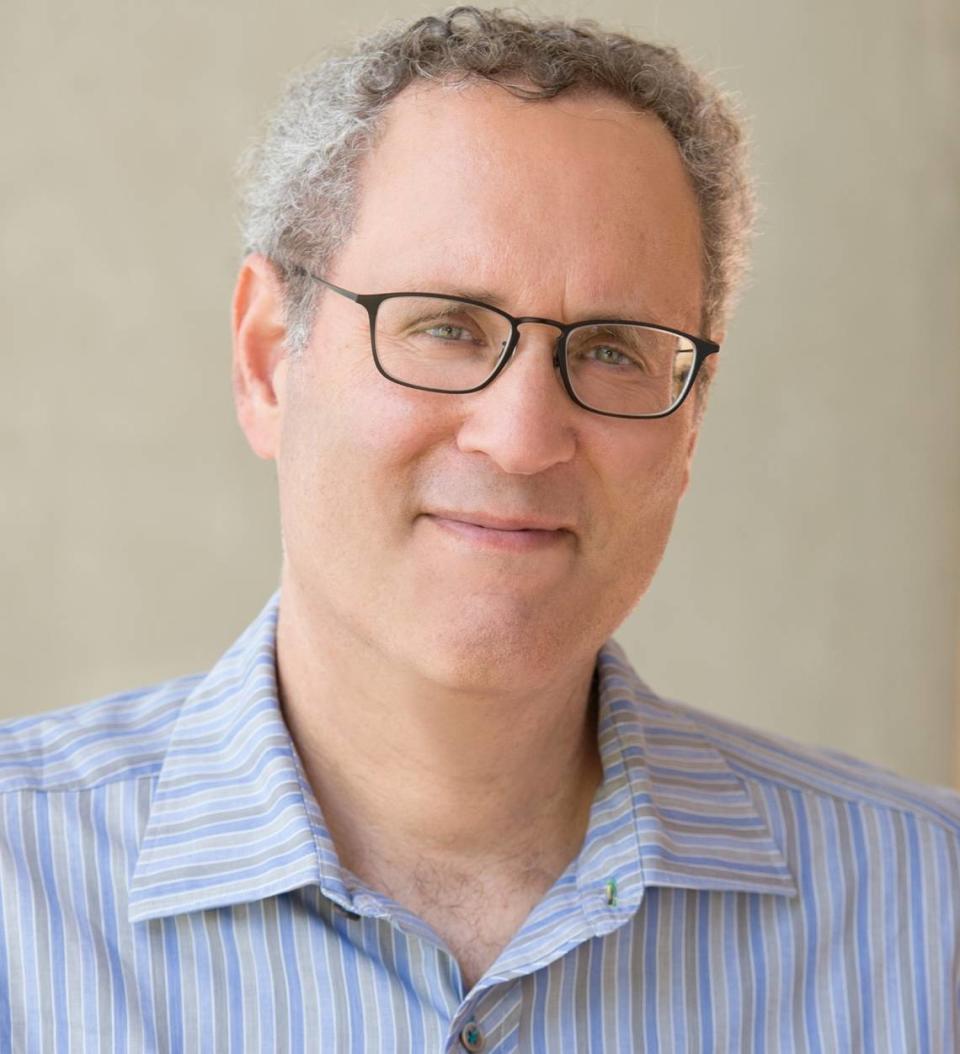Could Trump pardon himself? Here’s what 2 former impeachment lawyers say.
- Oops!Something went wrong.Please try again later.
Former President Donald Trump’s defense to his indictment on 37 felony counts for mishandling government documents — that he declassified them by thinking about it — is a harbinger of defenses to come.
It is hardly out of character for Trump to make another fantastical claim to help himself — that he has already pardoned himself. Just this week, Trump said, “I don’t think I will have to” pardon himself should he win the presidency, which is hardly a rejection of that possibility.
Whether it was written and signed, stated aloud by Trump, or thought of by Trump, the question remains: May presidents pardon themselves? When and if the time comes when Trump makes such a claim, we should be prepared to point out just how wrong it is.

The presidential pardon power appears in Article II, Section 2 of the Constitution. It says: the President “shall have the Power to grant Reprieves and Pardons for Offenses against the United States, except in Cases of Impeachment.”
The Constitution is silent on the issue of whether presidents may pardon themselves, a silence which can be read in diametrically opposite ways. One is that the absence of language banning presidential self-pardoning means it is not barred. Similarly, if the Framers meant to preclude presidents from pardoning themselves the Constitution would have said so.
The other way to read the Constitution is that it is so unthinkable that presidents could pardon themselves that it did not have to be spelled out. In the absence of clear language conferring the power to self-pardon on presidents, it makes no sense to infer it, since the framers did not wish to establish in America monarchs who could place themselves above the law.
The issue of a presidential self-pardon is now front and center. Besides Trump’s indictment for concealing, withholding and lying about government documents, the January 6th Committee concluded its hearings with a transmittal to the Justice Department stating that President Trump engaged in conduct which the Department may consider for possible prosecution for crimes, including conspiracy to defraud the United States and assisting or aiding an insurrection.
The U.S. Attorney General has appointed a veteran federal prosecutor to investigate Trump’s involvement in interfering with the lawful transfer of power. Based upon the commitment of time and resources being expended with an eye toward the possible federal prosecution of Trump, it is reasonable to assume the Justice Department will ignore any Trump attempted self-pardon.
Nor is this the first time the Justice Department will have faced the issue. Before being pardoned by Gerald Ford, former President Richard Nixon asked the Justice Department whether he could pardon himself. Mary Lawton, then serving as the Acting Assistant Attorney General in the Office of legal Counsel, opined that the fundamental rule that no one may be a judge in his own case led to the conclusion that presidents did not have power to pardon themselves. A similar conclusion was reached in much of the academic community. Harvard Law School Professor Cass Sunstein is among the many legal scholars who suggest granting pardons is a matter of mercy and grace to others. One does not “grant” oneself anything. Nor does one show mercy to themselves.
Expressly prohibiting self-pardons is unnecessary when logic, original meaning, practicalities and the Constitution’s design all point in that direction. Indeed, the arguments Trump may soon make that he has such power ignores not just that but the fundamental constitutional principles that no one is above the law and no one should be a judge in their own case. Trump may ignore all that in his quest to become a monarch, but the rule of law is clear no president has this power, regardless of whatever he may wish or think.
Michael Gerhardt teaches constitutional law at the University of North Carolina Law School and was former special counsel to the Presiding Officer in Donald Trump’s second impeachment trial. Alan Baron is a former federal prosecutor and former Special Impeachment Counsel to the U.S. House.
